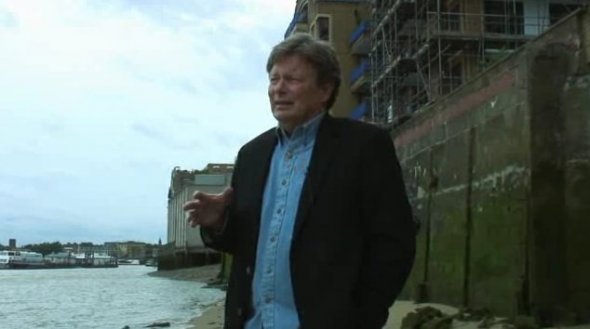The Sea is Red: A Video Interview with Marcus Rediker
Focusing on specific events and mythologies attached to past and recent maritime radicalism, historian Marcus Rediker talks to Omar El-Khairy about piracy, the origins of global capitalism, and the poetics of history from below. This interview was facilitated by Gasworks in the context of their Hydrachy: Power and Resistance at Sea exhibition
1. The Shifting Figure of the Pirate: from the golden age of piracy to its place in popular imagination today
2. The Resurgence of Piracy
How can we retrace the rise of global capitalist development through the history of pirates and their activities? And what implications does this have on how we both look at and analyse the current financial crisis?
3. History and the Metaphor of the Ship
Much has been made of the impact of globalisation and in particular the supposed weakening of state power; how do histories of the sea and the ship help disrupt this logic?
4. The Sea on Land
To what extent have these particular histories both destabilised our understanding of the nation-state as a ‘natural' entity and help shape our present postcolonial cultures?
5. Piracy in a Post-9/11 World
With the growth of state piracy and the increase in illegal activities by multinationals, who is the pirate today? And with the shifts in illegal state activities - from arms trades to rendition flights - to what extent has the ship been replaced by the plane?
6. The Sea Is Red
From slaves to immigrants, a lot of life has been and continues to be lost at sea, but there is also another history to the sea, that of maritime radicalism; where does this tradition of radical action live on today?
7. The Multi-Ethnic Motley Crew
How does the radical transnational nature of this group help us think about the politics and aesthetics of our contemporary cultural formations?
8. The Sea and its Law
The sea remains an ambiguous zone, which allows for both capitalist deregulation and the plunder resources, but also for radical action to be imagined; what potentially rebellious movements can still be formed at sea? To what extent can figures of history from below - the pirate, the refugee, or the migrant - destabilise the logic of the nation-state?
9. History From Below
Who have been your influences? Where do you see that tradition and style of history-telling today? How has the Internet changed the way we dig up history and retell our stories? And in our digital age, can history from below prevent a fetishisation of the web and highlight the materiality of life underneath it?
10. The Future of the Pirate: The anti-Pirates of the Caribbean
TV adaptation of Marcus Redkier's Villains of All Nations: Atlantic Pirates in the Golden Age
11. The History of the River Thames and the History of Struggle
The full interview can be downloaded as a video or audio file
The Sea is Red: A Video Interview with Marcus Rediker by mute-magazine
Marcus Rediker is a historian, activist and poet. He is professor of maritime history at the University of Pittsburgh and the author of The Many-Headed Hydra (2000), Villains of All Nations (2005), and The Slave Ship (2007)
Omar El-Khairy <omarelkhairy AT gmail.com> is a playwright and PhD candidate in political sociology at LSE. He resides in the gutters of the English language Audio-visual recording and editing by Jaya Brekke and Silje Hyenes Lysne for BLIP
Info
Hydrarchy: Power and Resistance at Sea is showing at Gasworks, South London 18th September to 7th November 2010
Mute Books Orders
For Mute Books distribution contact Anagram Books
contact@anagrambooks.com
For online purchases visit anagrambooks.com







